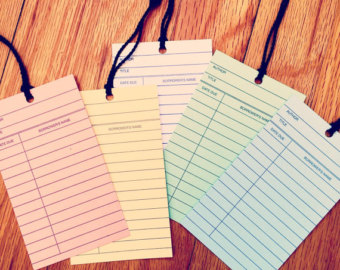Many, many moons ago, I cried when I reached the end of a great book. It was the final volume of Tolkien’s Lord of the Rings trilogy, and it wasn’t a sad ending that made me cry but rather it was so good and so engaging a story that I didn’t want the book to end.
I felt similar feelings last week as I reached the end of War and Peace. It wasn’t exactly the same as with Tolkien—for one thing, I won’t be rereading War and Peace seven times the way I did LOTR. But it was sad coming to the end of the book. The writing (a translation, of course) was good and the story and characters engaging. I wanted to read more about Pierre and Natasha and their new world of peaceful happiness. I’m curious to know whether Nikolai continues his success and keeps his promise to Marie to keep his temper in check and to see how she adjusts after her loving job of raising the children is finished.
 I am also sad because there has been a six-month-long grandchild tradition going on related to the book. The bookmark I am using now was a party favor made by Ali’s good friend for the baby shower she had for Ali when Maddie was on the way. It is an old library card (remember those?) with a nice blue ribbon attached to the top. One of these days I am going to read the book that the card was for (Jeffrey Archer’s Twelve Red Herrings).
I am also sad because there has been a six-month-long grandchild tradition going on related to the book. The bookmark I am using now was a party favor made by Ali’s good friend for the baby shower she had for Ali when Maddie was on the way. It is an old library card (remember those?) with a nice blue ribbon attached to the top. One of these days I am going to read the book that the card was for (Jeffrey Archer’s Twelve Red Herrings).
Every time Maddie came to our house, her first action was to go to the coffee table, where War and Peace sat, and pull the bookmark out of it. She didn’t care whether the action got a reaction from anyone, negative (oh, no, Maddie!) or positive (haha, she did it again!), she just did it as if it were her personal job that had to be done before she could get on with other things. After the first three times she did this, I learned to memorize the page number I had left off on so that I didn’t have to spend so much time finding my place again. At 1,224 pages, one could get pretty lost! Now this adorable tradition has come to an end, and it’s kind of sad.
 One outcome of having read War and Peace is that I am encouraged to read Anna Karenina. Several people have suggested, when I told them I was reading W&P, that Anna Karenina is better, so why not? Tolstoy’s storytelling in W&P was entrancing. As I mentioned in my first blog about the book, he doesn’t go into details about setting. His details focus, rather, on the thought processes of his characters and their motives and reasonings during both war and peace. He shows from inside their minds exactly how his young adult characters move through the process of maturation in relation to their personalities, family situations, and social and political events. The motives and actions of the older-generation characters are likewise made clear, and his minute descriptions give insight into human life in general.
One outcome of having read War and Peace is that I am encouraged to read Anna Karenina. Several people have suggested, when I told them I was reading W&P, that Anna Karenina is better, so why not? Tolstoy’s storytelling in W&P was entrancing. As I mentioned in my first blog about the book, he doesn’t go into details about setting. His details focus, rather, on the thought processes of his characters and their motives and reasonings during both war and peace. He shows from inside their minds exactly how his young adult characters move through the process of maturation in relation to their personalities, family situations, and social and political events. The motives and actions of the older-generation characters are likewise made clear, and his minute descriptions give insight into human life in general.
His picture of how the social arena of high society in early 19th-century Russia was manipulated at parties and by strategic visits was interesting. His descriptions of things that go through a soldier’s mind before and during battle were fascinating. The battle scenes in particular make one wonder (as Tolstoy intended) how any battle plan could be successful: Tolstoy is a firm believer in chance, and the scenes successfully depict chaos at the level of each individual soldier. My final judgment is that it is very good reading and it is clear why the book is considered a masterpiece.
An IU scholar in Russian history told me that when he teaches War and Peace, he tells his students they don’t have to read the last 35 pages, which consist of Tolstoy’s philosophy of history. The section was indeed pretty dull and very repetitive and fairly full of fallacies, as far as my own pathetic understanding of rhetoric goes. I made my way through it, however, partly because I hate to leave things unfinished and partly because I wanted to be sure I read everything Tolstoy had to say, in case he had new material in that long, boring essay. Partly, as well, I read it because I had enjoyed the book as a whole, and I didn’t want it to end.